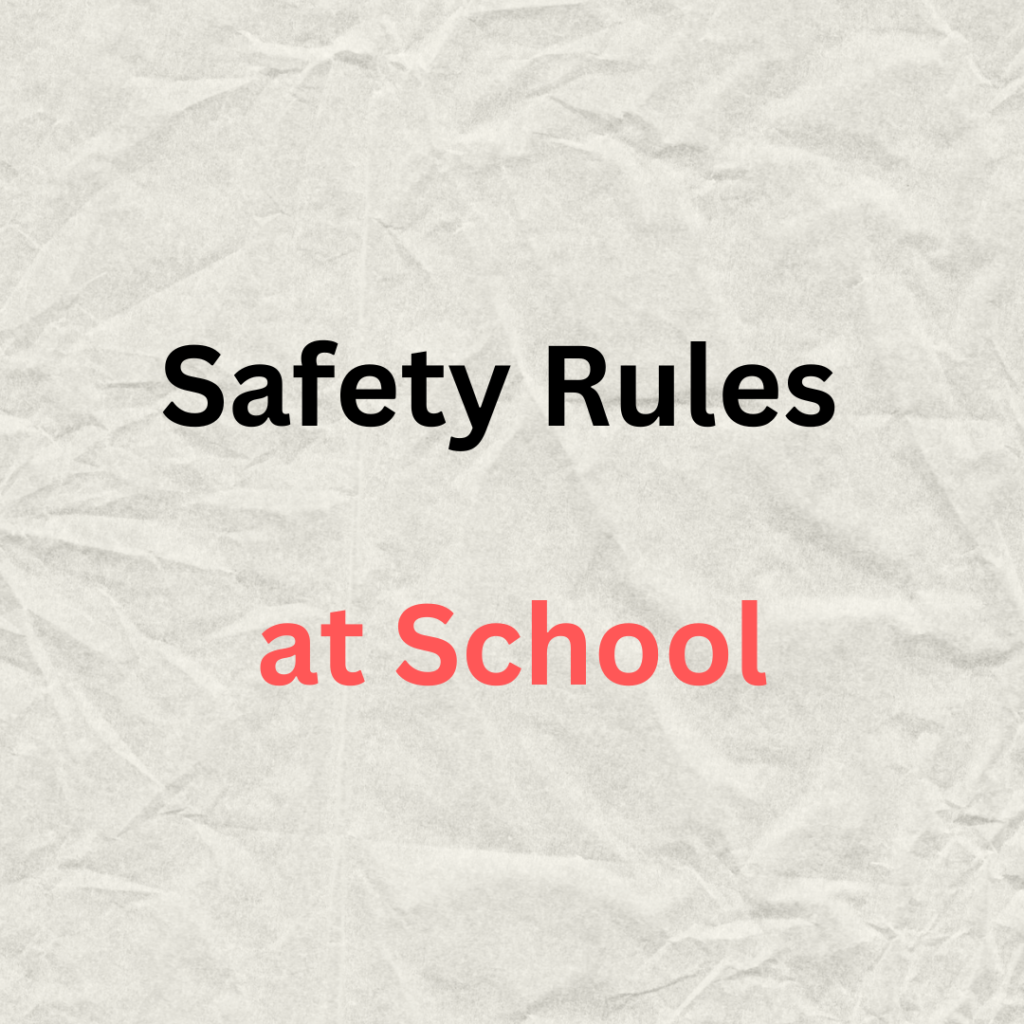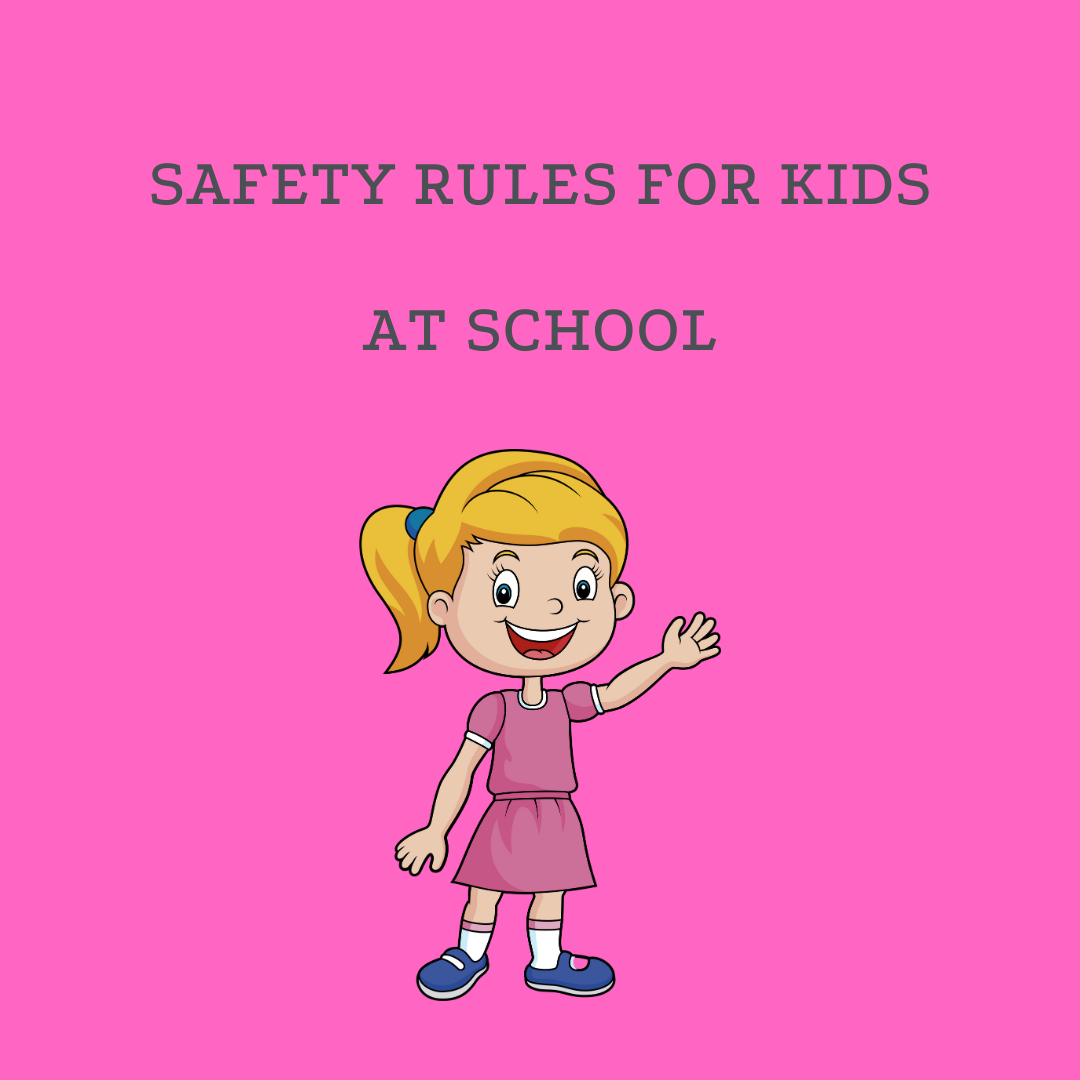Safety Rules for Kids at School
Introduction of Safety Rules for Kids at School:
Safety rules for kids at school is a priority of the teachers and the principal. Guiding children with safety guidelines can ensure a happy and healthy future. The education could vary reasons to avoid strangers to protocols during an earthquake or a building fire.
Guards, teachers, principals, and CCTVs can’t monitor every child. If children don’t abide by a set of prudent rules, they can become victims of kidnapping, can’t find directions to their homes, get hurt, or more.
Why Safety Rules for Kids is Important?
Safety rules for kids is to protect or escape the most challenging situations. It builds a protective nature in them. Moreover, it instils confidence in walking in public, talking to someone, avoiding fights, etc.
The school safety fundamentals help to build a mindset and reduce the concerns about the well-being of the children. It helps to keep them more focussed on the social issues and their education, resulting in better growth and grades.
10 Safety Rules at School for Child
Below is the list of 10 safety rules at school for child:
1. Avoid Speaking to Strangers
One of the most emphasized guidelines in the safety kit is teaching about avoiding talking to strangers. Whether it is a known person or someone unknown, children should only wait for their parents to escort them from school. They should not blatantly trust anyone.
2. Revoking from Oversharing on Social Media
While social media platforms are a great place to build friends and join communities, the risk of being exposed to people with criminal intent remains. Therefore, children should not overshare their information and only add known people to their circle, which resonates with not talking to strangers.
3. Stay Away from Harmful Objects
Children should avoid unidentified objects, as they can explore, burn, cause allergies, etc. Moreover, the effect of touching them can be long-lasting or irreversible.
4. Remain Under Adult Supervision
Having an adult around is essential to avoid getting trapped, kidnapped or messed up from fights. Moreover, it can prevent serious panic situations for the school faculty and the parents.
5. Follow Traffic Rules
Children should not walk across the road without holding the hands of their parents. They should not cross lights when the signal is orange or green, as it causes accidents and death. Following the traffic rules can ensure a fulfilled life for children.
6. Stay Within School Premises
Children should not cross walls or fences to go out of school premises. It can lead to injury, worry parents and faculty members, and leave them unsupervised. Therefore, teaching the importance of staying within the school premises is essential.
7. Helpline Contact Numbers
Children should know the helpline numbers by heart. They should be taught that the numbers are mentioned in their diary or on the rear end of the school bus. Even 2-3-year-olds should know about the numbers as they can become helpful under dire circumstances.
8. Avoiding Messing with Animals
Animals like dogs, cows, buffalos, etc., can be seen walking around schools or near the residential areas of the kids. They should be taught about avoiding messing around with them, as they can react dangerously.
9. Traveling Guidelines
Teaching children at school about reading directions and setting their school location on their devices can be highly beneficial in case children get lost. Extra precautions like carrying a concealed pepper spray during travel can also safeguard them from strangers.
10. Important Numbers and Addresses
Children should know about their home address, neighbour address, nearest landmark, and the numbers of their parents and school to reach back to their homes safely. It’s best to repetitively and unknowingly make them practice learning these numbers and addresses.
Explore our online English speaking course in India.

FAQs – Safety Rules at School
1. What are the consequences of breaking safety rules at school?
Ans– The consequences of breaking safety rules at school can vary depending on the severity of the infraction. However, some possible consequences include:
- Verbal warning.
- Written reprimand.
- Detention or suspension from school.
- Involvement of law enforcement.
2. What can parents do to help their children stay safe at school?
Ans– Parents can play an important role in helping their children stay safe at school by:
- Talking to their children about school safety rules.
- Encouraging their children to report any unsafe conditions or incidents to a teacher or staff member.
- Helping their children develop conflict resolution skills.
- Monitoring their children’s online activities.
- Staying informed about school safety policies and procedures.
3. How can schools promote a culture of safety?
Ans– Schools can promote a culture of safety by:
- Clearly communicating safety rules and expectations to students, staff, and parents.
- Providing regular safety training and drills.
- Creating a supportive and respectful learning environment.
- Encouraging open communication about safety concerns.
- Implementing effective disciplinary measures for safety violations.
4. What should teachers do to create a safe school environment?
Ans– Teachers can do a number of things to create a safe school environment, including:
- Enforce safety rules consistently.
- Supervise students closely.
- Teach students about safety procedures.
- Create a positive and supportive classroom environment.
- Be aware of your students’ needs.
5. What are some additional tips for kids to stay safe at school?
Ans–
- Be aware of your surroundings and trust your instincts. If something feels wrong, report it to an adult.
- Don’t talk to strangers or give them personal information. If you see someone you don’t know, tell an adult.
- Don’t share your food or drinks with others. This could make you sick.
- Don’t bring dangerous items to school. This includes things like knives, firecrackers, and weapons.
- Be a bystander and help others who are being bullied or harassed.
